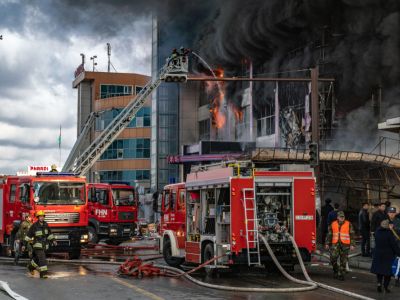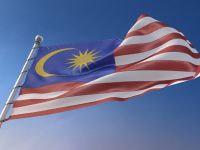The State Department has deemed much of Central and South Asia unsafe for US nationals as the United States gears up for possible military action in Afghanistan after this month's terrorist attacks.
Between the September 11 strikes and Monday, it has warned US citizens against visiting three countries in the region -- Pakistan, Kyrgyzstan and Turkmenistan -- and told its non-essential diplomats there they could leave.
In addition, the department has told the US public to "evaluate carefully" travel to Uzbekistan as Washington deploys troops for possible retaliation against the US government's prime suspect in the attacks, Osama bin Laden, and his hosts Afghanistan's Taliban militia.
Tajikistan is covered by a travel warning dating from June 29 and the department has long warned US nationals to avoid Afghanistan for which the last warning dates from December 2000.
That warning makes explicit mention of possibility of US military action against the Taliban and bin Laden, who is also accused masterminding the 1998 bombing of the US embassies in Kenya and Tanzania and last year's attack against the USS Cole, a navy warship anchored in the Yemeni port of Aden.
"US citizens who are in Afghanistan or considering traveling there should be aware that the US government reserves the right to retaliate against the facilities of those who harbor terrorists, as well as the terrorists themselves," it says.
The only country in Central Asia not covered by warnings specifically related to bin Laden is Kazakhstan. In South Asia, countries not covered are India, Bhutan, Bangladesh, Nepal, Sri Lanka and the Maldives.
US citizens have, however, been advised to either avoid or reconsider travel to visit Bangladesh and Nepal because of domestic political unrest and Sri Lanka, because of the threat of attacks by the Tamil Tigers.
State Department officials note that US citizens around the globe have been cautioned against possible terrorist acts in a series of "worldwide cautions," the most recent of which was issued a day after the attacks in New York and Washington.
But the flurry of warnings and so-called "authorized departures" of non-essential diplomats over the past 12 days has clearly highlighted dangers in Central and South Asia, the likely focus of US military action.
"Obviously, it's an area where we think Americans should take extra precautions," said one senior State Department official -- WASHINGTON (AFP)
© 2001 Al Bawaba (www.albawaba.com)









